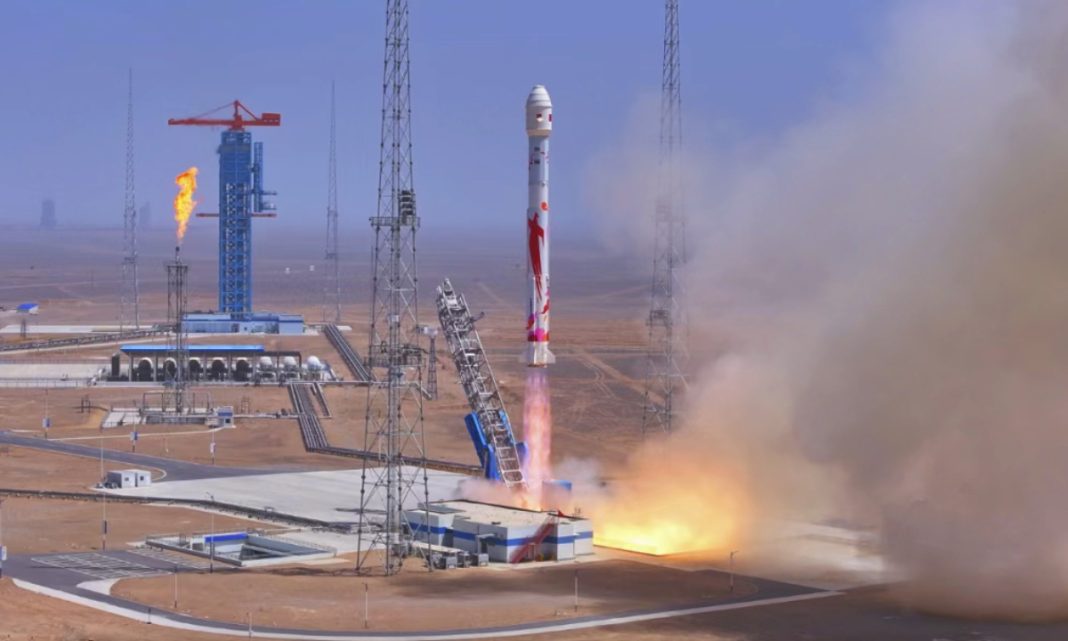BEIJING: Six Chinese commercial aerospace companies had their IPO counseling and filing accepted by local securities regulatory bureaus from June 18 to November 27, the Securities Daily reported on Friday, amid faster growth in China’s commercial aerospace sector and launches being scheduled for several reusable carrier rockets in the coming months.
Chinese industry insiders and financial experts said more commercial aerospace companies are set to receive further support from the capital market as China’s commercial aerospace industry moves from the technological exploration phase to commercialization.
The Securities Daily reported on Friday that six commercial space companies, including Chinese private space firms LandSpace, Galactic Energy, CAS Space, Space Pioneer, Yee Space and Mino Space, have had their IPO counseling and filing accepted by local securities regulatory bureaus.
The IPO progress has come amid China’s increasing policy support for the sector. The China Securities Regulatory Commission (CSRC) announced in June a new sci-tech growth tier on the country’s Nasdaq-style Science and Technology Innovation Board, also known as the STAR Market.
The regulator also called for more support for companies in cutting-edge sectors such as artificial intelligence and commercial aerospace, such as more accommodative listing standards on the STAR market, in light of industrial development and market demand.
Beijing-based LandSpace said in a statement sent to the Global Times that it is set to launch its ZQ-3 reusable rocket at the end of November. Industry analysts said this will be a key step in the mastering of heavy duty, low cost and reusable rockets by Chinese private space firms.
Space Pioneer, another Beijing-based aerospace company, is also preparing for a launch for its Tianlong-3 reusable rocket, according to the South China Morning Post. The rocket is expected to be used to build China’s massive internet satellite constellations, the report said.
A Beijing-based venture capital investor surnamed Liu told the Global Times on Friday that there has been a marked rise in market attention toward the commercial aerospace sector, given the policy support and recent progress made in the industry. “The new policies are also a boon for earlier-stage investors looking for an exit strategy,” Liu said.
Tian Lihui, professor of finance at Nankai University, told the Global Times on Friday that listing can not only address the financing challenges faced by enterprises and secure funding for continuous research and development input, but also guide capital toward companies with genuine technical strengths and commercial potential. It will also promote the healthy development of the industry, Tian noted.
The CSRC’s call for more accommodative listing standards on the STAR market precisely addresses the chokepoint for commercial aerospace – high R&D investment and long profitability cycles – by opening up more capital market channels for the industry, Tian said.
Further policy support came on Tuesday, when China’s space agency released an action plan to back commercial space firms and encourage them to pursue international cooperation over the next two years.
The document released by the China National Space Administration (CNSA) said the country’s commercial space enterprises should “go global” and help developing countries to build satellite-application industries.
Among the supportive measures, the CNSA will establish a national commercial space development fund and local governments will be urged to establish technology-innovation centers focused on reusable rockets and smart satellites, and to build open platforms for advanced manufacturing, final assembly and testing.
The plan aims to achieve high-quality commercial space development by 2027. The recommendations for the country’s 15th Five-Year Plan (2026-30) list the aerospace sector among China’s strategic emerging industries. –The Daily Mail-Global Times news exchange item





